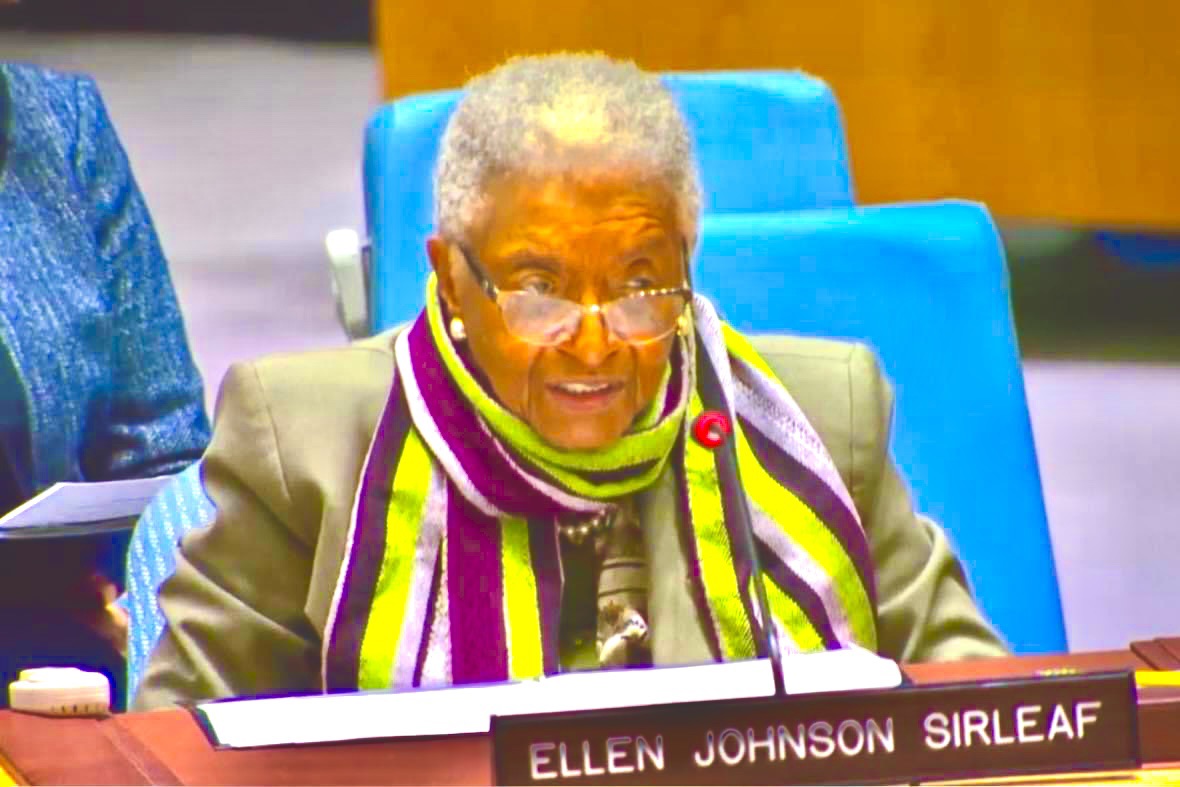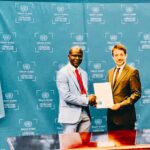NEW YORK: Yesterday September 25, 2024, Ellen Johnson Sirleaf addressed the UN Security Council, calling for urgent enforcement of international law and reform of the Council to address escalating conflicts and prevent future crises.
Read her remarks in full 👇👇:
Mr. President, Mr. Secretary-General, Excellencies, Distinguished Members of the Security Council,
It is an honour to speak to you today as a member of The Elders, the group of independent leaders founded by Nelson Mandela.
Preserving peace should be the primary responsibility of any leader. Yet the leadership for peace that the world desperately needs is sorely lacking. Today, The Elders are calling for action on three issues:
Firstly, leaders must uphold international law consistently. From Ukraine to Gaza, and beyond, increasingly we see systematic violations of international law in conflict settings, and impunity for those who commit atrocities.
Powerful states — including some permanent members of this Council — are deliberately ignoring international norms.
Russia’s war of aggression on Ukraine is a flagrant violation of the UN Charter, with the Security Council paralysed and not responding.
We are seeing some Council members undermine decisions of the International Court of Justice, and threaten the International Criminal Court and its officials.
It is vital that our international judicial institutions are supported and their decisions upheld. International law must be applied consistently, regardless of who is being held accountable.
In conflict situations from the Middle East to Sudan, Myanmar and elsewhere, influential states are intervening in ways that inflame aggression. Arms transfers to conflict parties, where there are clear violations of international law, must end.
Secondly, conflict resolution and peace-building must be truly inclusive. Next year will mark 25 years since this Council passed Resolution 1325, which recognised the crucial role that women must play in peace and security. Yet the decisions that most affect peace and security are still primarily, and in some contexts exclusively, made by men – often the same men who initiated the conflict.
The Elders call for the necessary participation of senior women in peace-making and peace-building processes and in prime leadership positions in the United Nations.
Throughout my career, I have seen how the inclusion and empowerment of women can drive real change. If we are serious about fostering leadership for peace, women must be represented in international bodies, national parliaments, communities, and in defence and security establishments.
Finally, you, as leaders, must restore the credibility of the International Peace and Security architecture.
The UN is known world-wide for its peacekeeping, including in my own country, Liberia, where after 14 years of civil war, peacekeeping operations played a crucial role in securing peace.
Sadly, peacekeeping is broken at a time when it is needed more than ever. Existing missions are closing, without resolution of the underlying conflict. And for emergent conflicts, there is neither political will for engaging peacekeepers, nor sufficient troops to place on the ground, as many countries who might normally commit personnel have to deal with conflicts within their own borders.
Leadership for peace is essential to address these destabilising conflicts, and the existential threats facing all humanity – the climate crisis, nuclear proliferation and the risk of pandemics.
When the world looks to the UN for leadership in the face of these threats, it looks first to the Security Council. But this Council is widely seen to be ineffective.
Reform is urgent and overdue. The Council must be fit for the world of 2025 and beyond, not a relic from 1945.
To build on the momentum of the Pact for the Future, The Elders call for a coalition to launch a reform process and drive negotiations for a more representative and effective Security Council. The General Assembly should play a critical role, as it did during the only successful previous reform of the Council.
Distinguished members of the Council, we live in daunting times. And these times demand honesty, integrity and commitment.
So let me close by asking the leaders of today – how long can we go on working under a system that is clearly failing? How long until it breaks, and we are faced with a catastrophe similar to that which forced the UN into being?
The time for excuses is past, and with great respect, we ask you to act.
Do not let us down.
Thank you.



